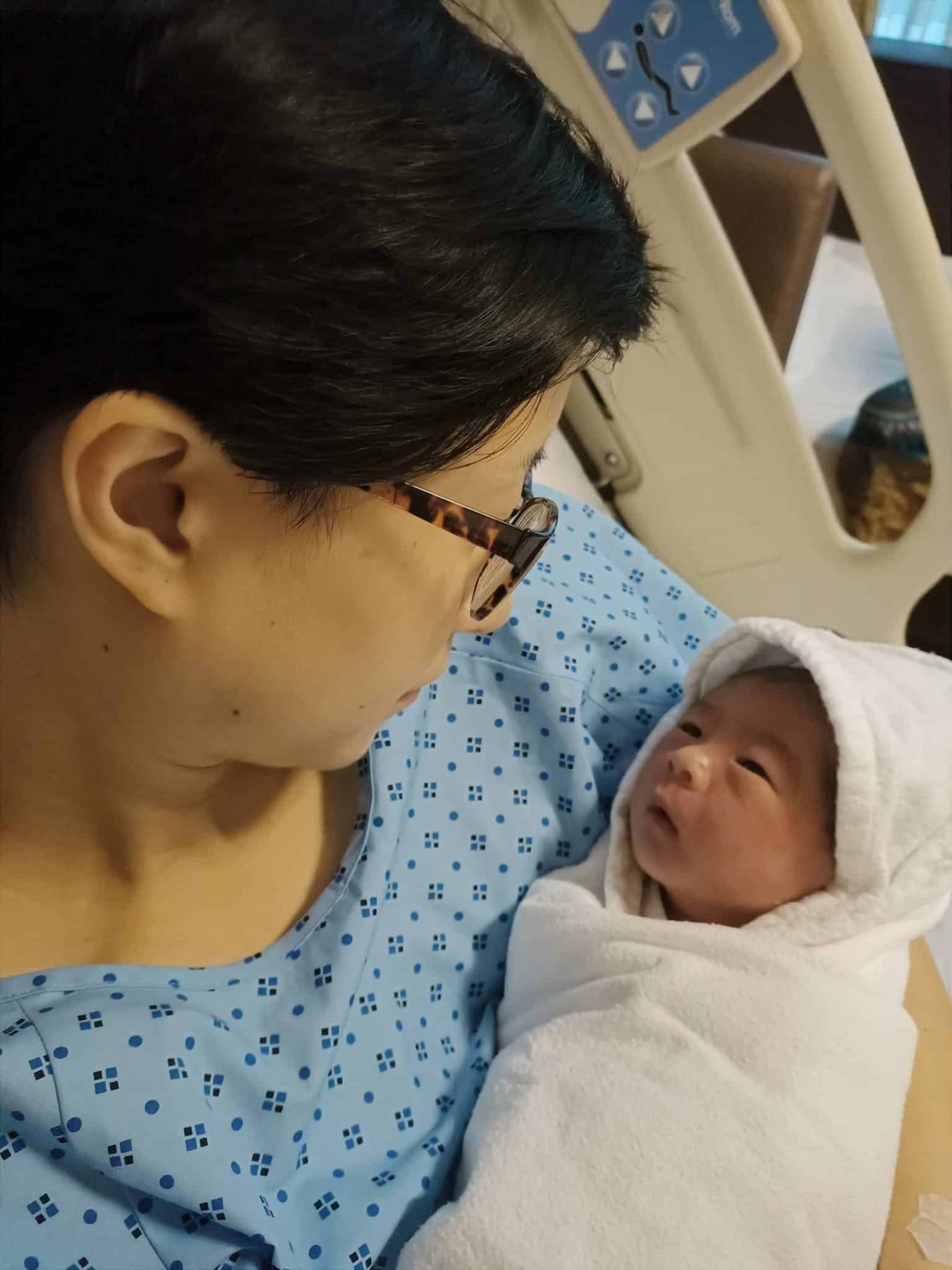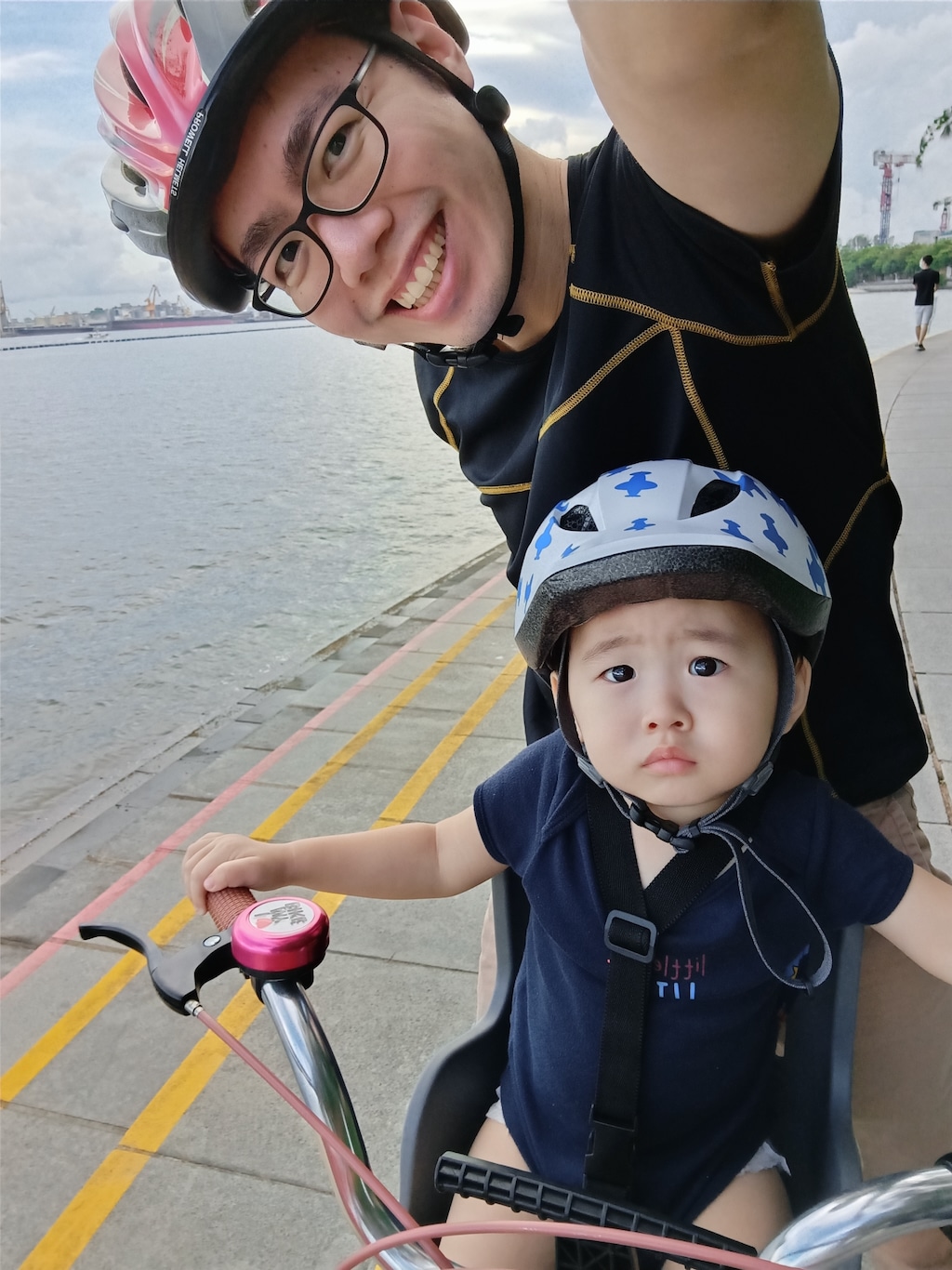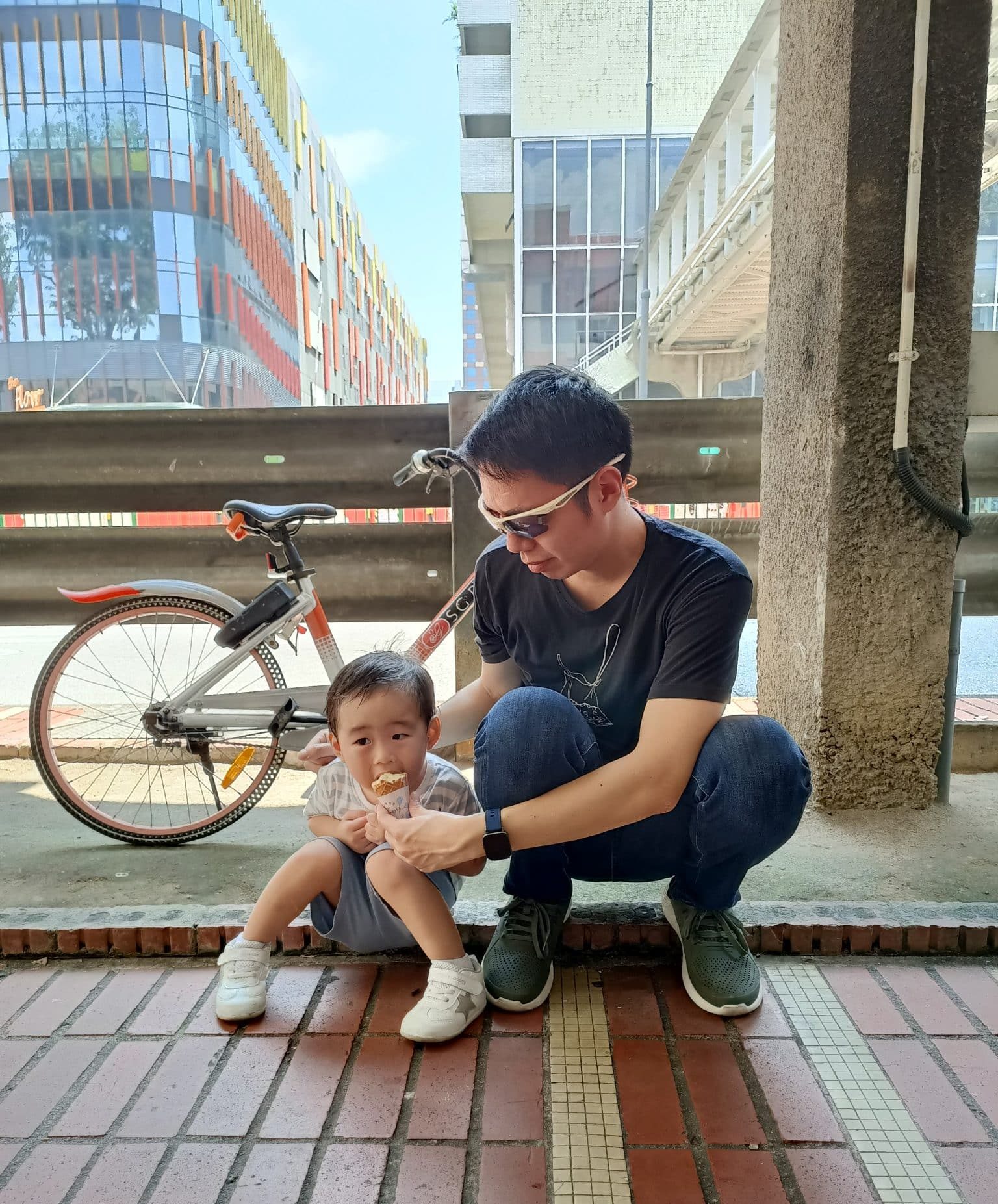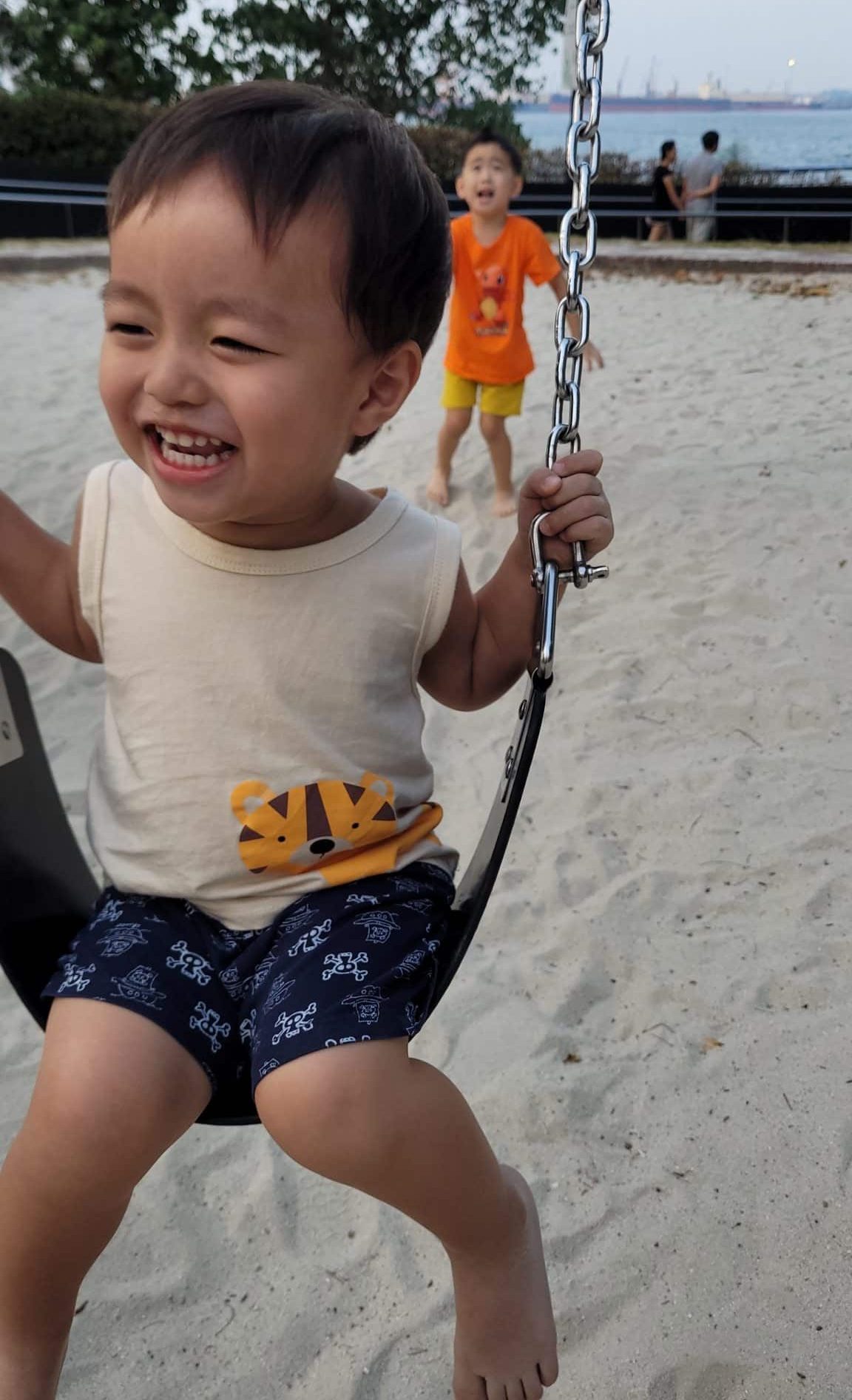As a new father, loving my children didn’t come naturally to me
Justin Hui // September 3, 2024, 11:05 am

While some young parents seem to slide naturally into their new roles, others may take longer to adjust, says this father of two. Photo by Khoo Yi Ting.
I will always remember the first words my wife said to our newborn son.
The day he was born was long and eventful, with medical personnel and excited relatives bustling about the hospital ward vying for a look at the baby.
It was only after the initial medical tests were complete and visitation hours were finally over that my wife had a private moment to gently pick up and fondly look at our child.
“I love you,” she finally said.
I am glad I did not speak my mind at that time because my immediate thought was: “But you just met him?!”
I hoped to experience the wonderful high that many new parents feel, but I did not.
Maybe it was the bonding hormones released during childbirth or some other maternal instinct kicking in.
Either way, my wife was somehow filled with deep affection for this boy she was laying eyes on for the first time… and yet I was not.
Later as she rested it was my turn to pick up the baby. I held him close, hoping to also experience the wonderful high that many new parents feel. But I did not.
Sure, there was some relief and happiness that he was finally born safely, but the level of joy I felt holding my son that night (or on subsequent nights) was nowhere near as intense as what I was expecting.

Unlike his wife (pictured), Justin did not experience strong feelings of affection when he first carried his son. All photos by Justin Hui unless otherwise stated.
Yet as I looked at the face of my sleeping child, I felt the strange, growing urge to also say “I love you” to this little bundle of (mild) joy.
I don’t know if it was societal pressure, expectations on parents or even guilt, but the words somehow awkwardly forced their way out of my mouth.
And from the moment “I love you” was said aloud, I resolved in my heart to make the words true.
Love is a commitment and commandment
As I pondered the meaning of love, I felt God was teaching me an important truth, especially for a new parent: That love is not a feeling.
I was reminded of a sermon I heard many years before.
A pastor explained that when Jesus gave us a new commandment to “love one another: just as I have loved you” (John 13:34), he was not referring to an emotion.
God cannot command us to feel a certain way about something; He can only command a behaviour.
So when Christ tells us to love, he wants us to be sacrificial (John 15:13), patient (1 Corinthians 13:4) and other-person-centric (Romans 12:10). All of these are choices and actions that demonstrate love, regardless of how we feel when doing them.
This is also why Jesus can command us to “love your enemies” (Matthew 5:44). We may feel no affection towards them, but we can still choose to behave in a loving way.
It is okay to not feel like loving, as long as you continue loving.
Armed with this truth, I began my journey into parenthood.
I may not have felt much of the joys that my wife (or any of the other relatives) seemed to enjoy when holding my child, but I was nevertheless a very committed and involved parent.
I did most of the bathing, bottle washing and diaper changing – at some points I was even getting up more often than my wife to mind the baby in the middle of the night.
I also made it a point to keep telling my son that he was loved. Saying it aloud was a reminder not only to him, but also to myself of the commitment I made since day one: to love him all my days.

By the time his son was two, Justin was often cycling him along the nearby park connector, singing and talking to him all the way.
I was relieved that I slowly started feeling my affection for my child grow. It was not an overnight thing, of course.
I constantly felt the frustrations of being a new parent far outweighed the joys, especially since I could not meet his primary need of breast milk for the first almost two years of his life.
How I turned the corner
Things really started picking up after he turned three and began talking in somewhat complete sentences.
I realised that while cute things such as kittens, puppies and smiling babies had little emotional effect on me, conversing with my son did wonders in growing my affection for him.
I distinctly remember one day when we were lying down together before an afternoon nap, and I realised that I was having an extended conversation with my son for the first time in our lives.
This was the turning point when I felt that the joys of parenthood were beginning to outweigh the frustrations – my love for my son was starting to have elements of warm and fuzzy feelings as well.

As someone whose love language is words of affirmation, Justin felt the parent-child bond grow the most when his son started verbalising his wants.
In hindsight, I realise how difficult it was to not talk about this struggle.
For the first three years of parenthood, I didn’t dare tell anyone that I didn’t feel much affection for my kids. How can a father say he doesn’t feel love towards his son?
Yet this is a genuine experience. I hope that by sharing it, other new parents who find themselves in a similar situation may not be unnecessarily alarmed.
While some young parents seem to slide naturally into their new roles, others may take longer to adjust. It is okay to not feel like loving, as long as you continue loving.
I confess I am still not out of the woods with my younger son yet.
To those wondering if I felt any different when my second son was born… yes and no.
Once again, I did not have a warm and fuzzy feeling when I first saw him, but I was not alarmed by my lack of affection. I simply picked him up, held him close and said “I love you”.
By this time, I knew my love for my sons was not based on any special feeling they give me, but simply because I am their father and I choose to love them.
That does not mean it is any easier to love the second time around.

Being a family of four brings new challenges, but Justin is still choosing to love despite moments of frustration. Photo by Khoo Yi Ting.
I confess I am still not out of the woods with my younger son yet.
With him being only two years old and unable to express himself in words properly, I have not reached the point where the joys start to outweigh the frustrations.
Just the other day, I was getting impatient with him taking forever to get ready for school – eating his breakfast cereal piece by piece rather than with a spoon, rolling on the bed rather than brushing his teeth, and finally stopping to look at every snail on the way to school.
I knew that at this rate, his older brother would miss his lessons. As I waited grumpily for him to catch up, my older son walked back to him, took him by the hand for the first time, and gently led him all the way to school as I followed behind, amazed.
Though he sometimes gets frustrated with his younger brother, it seems my first is also learning to love regardless of how he feels.

Justin is still being taught how to love – even if it is by his older son.
Many warn me that things are going to get more difficult, especially as kids become rebellious teenagers.
But that one lesson I learnt on the day I became a father gives me comfort, knowing that no matter how frustrated I feel with my children, I will always choose to keep loving them.
This is the choice that I made, the commandment that I resolve to obey, and the promise I am committed to see through for the rest of my life.
I hope they will never doubt my love for them and, in time, I hope they can also experience the all-surpassing love that their Heavenly Father has for them.
RELATED STORIES:
I learnt how to be a dad from my father, my spiritual fathers and my heavenly Father
Dad-icated: The dads who are building on their father’s legacies
We are an independent, non-profit organisation that relies on the generosity of our readers, such as yourself, to continue serving the kingdom. Every dollar donated goes directly back into our editorial coverage.
Would you consider partnering with us in our kingdom work by supporting us financially, either as a one-off donation, or a recurring pledge?
Support Salt&Light



